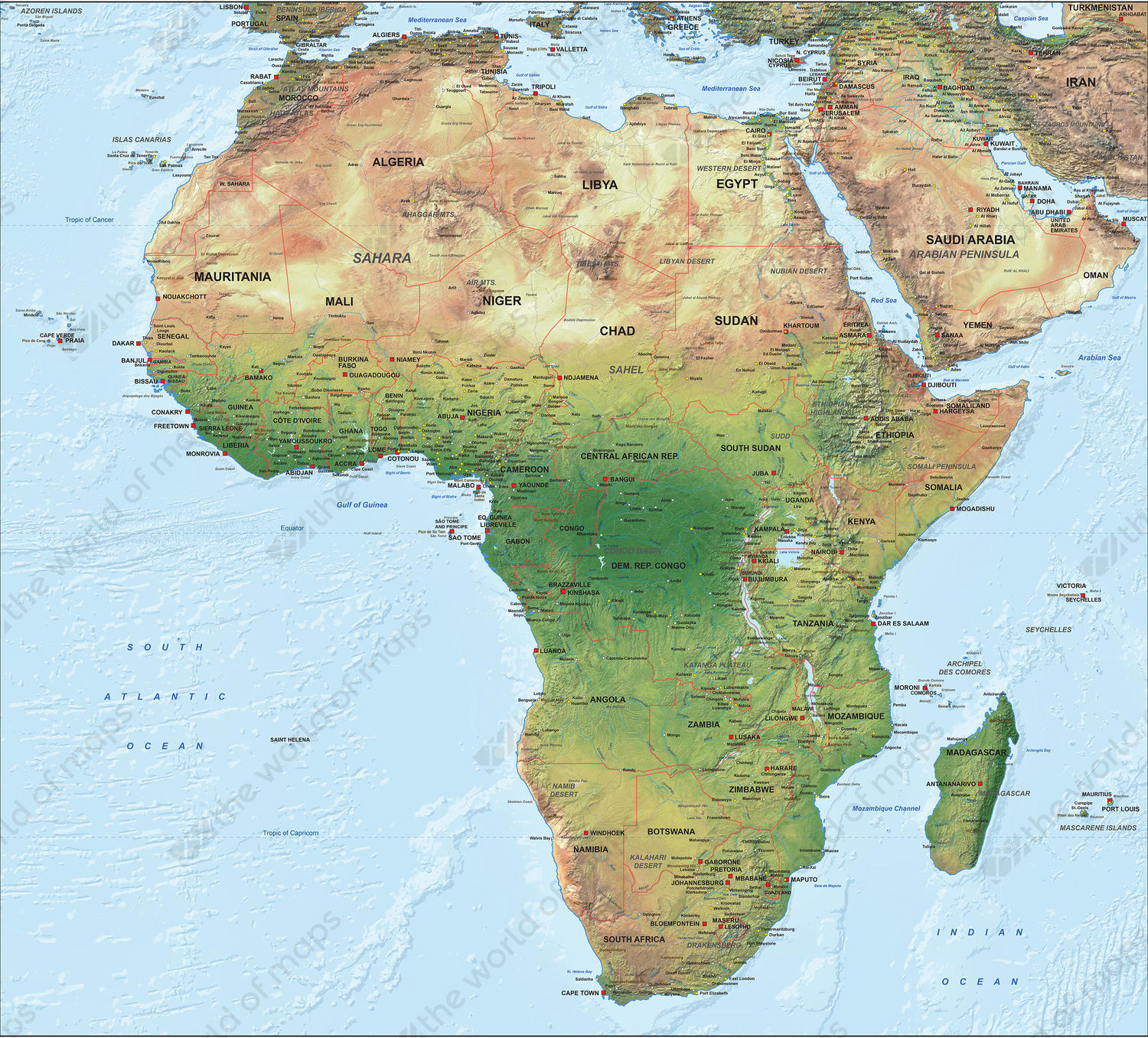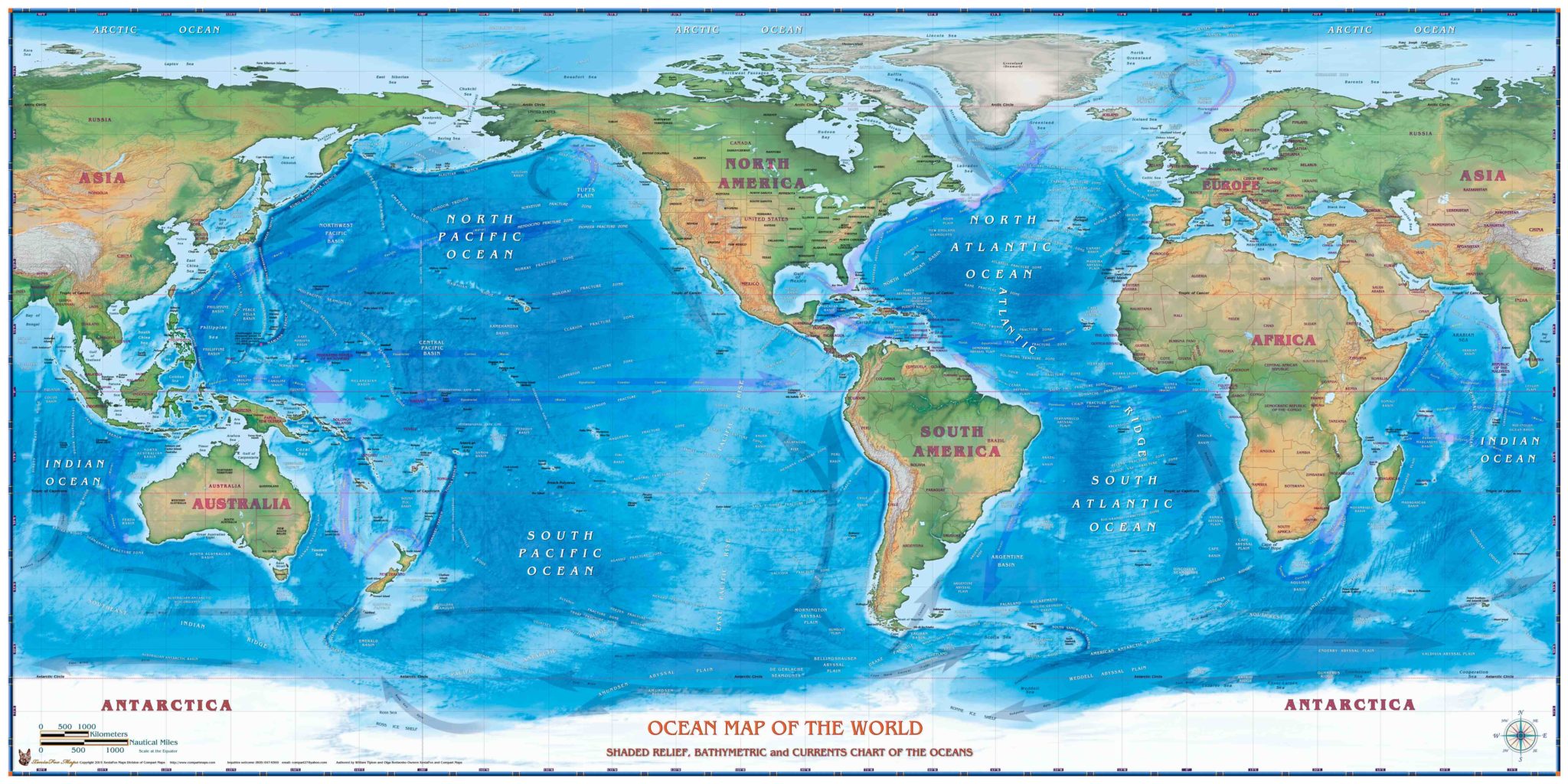Geography of Africa: A Diverse Landscape
Africa is a continent of vast landscapes, rich biodiversity, and diverse cultures. From the towering peaks of the Atlas Mountains to the depths of the Great Rift Valley, Africa’s geography is as varied as its people. In this article, we’ll explore Africa’s oceans and seas, highest and lowest points, straits, lakes, islands, and important gulfs and bays.
Oceans and Seas
The Atlantic Ocean
To the west, Africa is bordered by the Atlantic Ocean. This ocean is significant for trade and has influenced the cultures of West African countries like Senegal, Ghana, and Nigeria. The Atlantic is known for its rich fishing grounds, and many coastal communities depend on fishing as a primary source of income. The ocean also plays a key role in shipping, connecting Africa to Europe and the Americas.
The Indian Ocean
On the eastern side, Africa is bordered by the Indian Ocean. This ocean is vital for countries like Kenya, Tanzania, and Mozambique. The warm waters are rich in marine life, making it a popular destination for fishing and tourism. The islands of Mauritius and Seychelles, located in the Indian Ocean, are famous for their beautiful beaches and vibrant ecosystems.
The Mediterranean Sea
Africa and Europe are divided by the Mediterranean Sea to the north. This sea has been crucial for trade and cultural exchange for centuries. Countries like Egypt, Libya, and Tunisia have coastlines along the Mediterranean, attracting tourists with their historical sites and beautiful coastal towns. The Mediterranean is known for its warm climate and clear waters, making it a popular spot for vacationers.
Highest Point: Mount Kilimanjaro
The Majestic Peak
Africa’s highest point is Mount Kilimanjaro, which stands at 19,341 feet (5,895 meters) above sea level. Located in Tanzania, Kilimanjaro is a dormant volcano and is famous for its snow-capped summit. The mountain is a popular destination for trekkers and climbers, offering stunning views and diverse ecosystems. As climbers ascend, they pass through different climate zones, from tropical rainforests at the base to alpine desert near the summit.
Lowest Point: Lake Assal
The Unique Feature of Lake Assal
The lowest point in Africa is Lake Assal, situated in Djibouti, at about 509 feet (155 meters) below sea level. This salt lake is one of the saltiest bodies of water in the world, and its striking blue waters contrast beautifully with the surrounding desert landscape. Lake Assal is a vital resource for salt extraction and is also a unique habitat for certain organisms that thrive in high-salinity environments.
Straits: The Strait of Gibraltar
A Vital Passage
Africa and Europe are separated by the slender Strait of Gibraltar, which links the Atlantic and Mediterranean Seas. This strait is significant for maritime traffic, as it serves as a gateway between the two continents. The famous Rock of Gibraltar, located on the European side, offers breathtaking views of the strait and has historical significance as a strategic military site.
Lakes: Lake Victoria
The Largest Lake
The second-biggest freshwater lake in the world and the largest in Africa is Lake Victoria. It spans three countries: Tanzania, Uganda, and Kenya. Covering about 26,600 square miles (68,800 square kilometers), Lake Victoria is vital for the local communities that rely on it for fishing and transportation. The lake is also home to numerous species of fish, including the famous Nile perch. Unfortunately, Lake Victoria faces environmental challenges, including pollution and invasive species, which threaten its ecosystem.
Islands: Madagascar
A World Apart
The fourth-largest island in the world, Madagascar is situated in the Indian Ocean off the southeast coast of Africa. Known for its unique wildlife and biodiversity, about 90% of Madagascar’s plant and animal species are found nowhere else on Earth. The island is famous for its lemurs, baobab trees, and rich cultural heritage. Madagascar’s diverse landscapes, ranging from rainforests to deserts, make it a fascinating destination for nature lovers and researchers.
Important Gulfs and Bays
Gulf of Aden
The Gulf of Aden is located between the Arabian Peninsula and the Horn of Africa. This important body of water connects the Red Sea to the Arabian Sea and serves as a major shipping route. Countries like Somalia and Yemen have coastlines along the gulf. The Gulf of Aden is also known for its rich marine life and is a vital fishing area for local communities.
Bay of Biscay
Though primarily associated with Europe, the Bay of Biscay touches the northern coast of Africa. This bay is known for its rough seas and is significant for maritime trade. The coastal regions of Morocco and western Sahara are influenced by the bay’s weather patterns. The Bay of Biscay is also home to various marine species, making it an important area for fishing and conservation.
The Great Rift Valley
A Geological Wonder
The Great Rift Valley is one of the most significant geological features in Africa. It stretches from the Afar Triangle in Ethiopia down to Mozambique. This rift is a result of tectonic activity and has created a series of lakes, mountains, and valleys. The valley is home to several important lakes, including Lake Nakuru and Lake Malawi, which are known for their unique ecosystems and wildlife. The Great Rift Valley is also rich in archaeological sites, providing insights into early human history.
History behind iconic landmarks in the world | Maya (mayathevoice.com)
Final words
Africa’s geography is incredibly diverse, featuring a wide range of landscapes and ecosystems. From the highest peaks of Mount Kilimanjaro to the lowest depths of Lake Assal, the continent is a testament to the natural wonders of our world. Its oceans, seas, lakes, and islands not only shape the environment but also influence the cultures and economies of the people who live there.
Understanding Africa’s geography helps us appreciate the beauty and complexity of this vast continent. Whether you are exploring the vibrant ecosystems of Madagascar, trekking up Kilimanjaro, or sailing the warm waters of the Indian Ocean, Africa offers endless opportunities for adventure and discovery.




